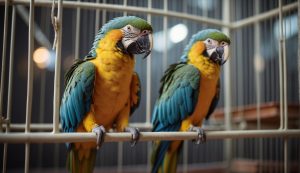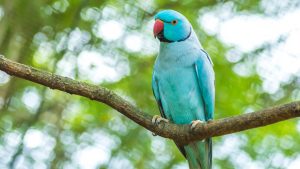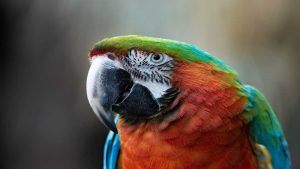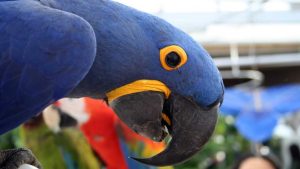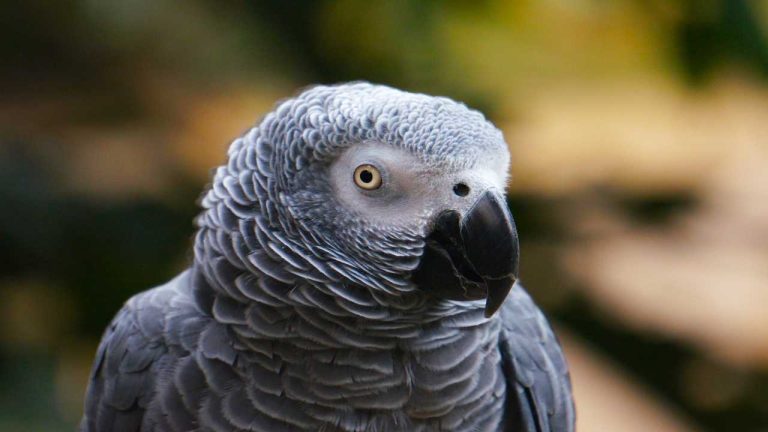Why Quaker Parrots Are Illegal: Understanding the Controversy
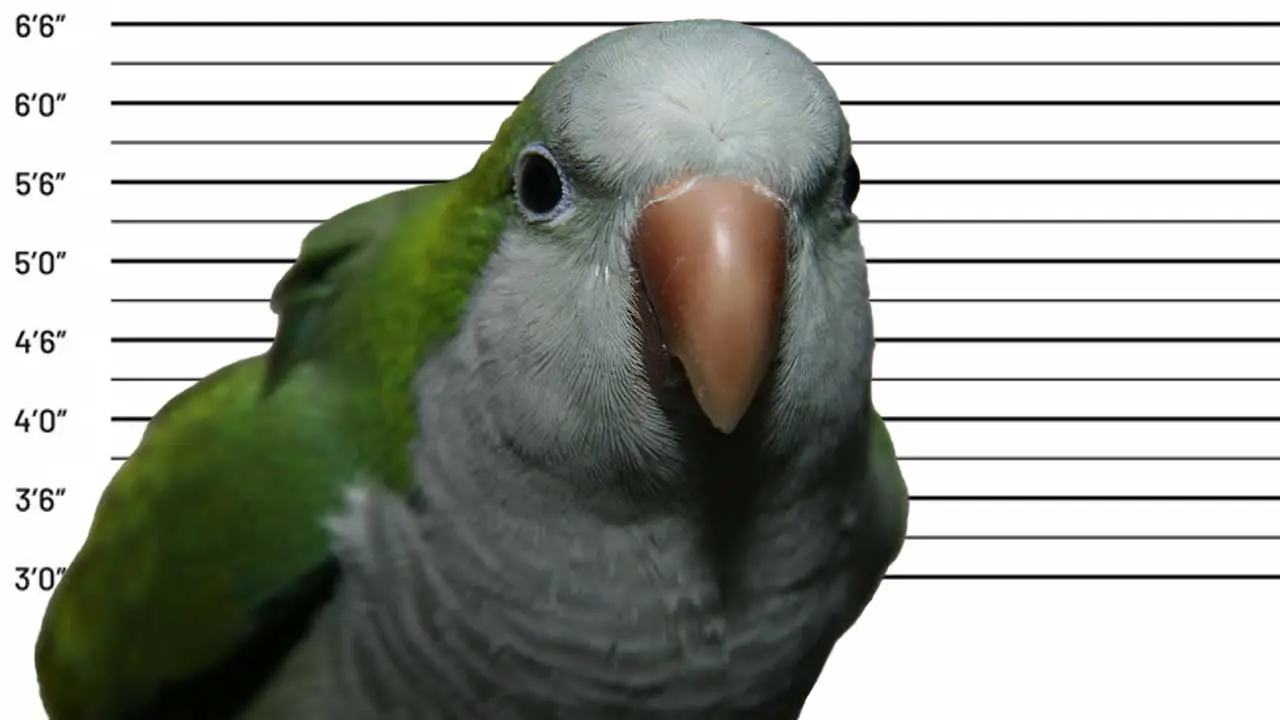
As someone who has worked with Quaker parrots, I am often asked why they are illegal in some states.
The answer is not straightforward, as there are a variety of reasons why Quaker parrots are considered illegal in certain areas.
However, there are a few common themes that emerge when examining the reasons behind this ban.
Quick Summary

One of the primary reasons that Quaker parrots are illegal in some states is due to concerns about their impact on local ecosystems.
Non-indigenous Quaker parrots have escaped captivity and are now considered invasive species in some areas.
These birds can cause damage to crops, compete with native bird species for resources, and even damage electrical equipment.
As a result, some states have banned Quaker parrots in an effort to protect their local ecosystems.
Table of Contents
Overview of Quaker Parrots
Description of Quaker Parrots
Quaker parrots, also known as monk parrots or Myiopsitta monachus, are small to medium-sized parrots that are easily identifiable by their green feathers, grey breast, and blue flight feathers. They have a distinctive facial expression that makes them appear to be smiling. Quaker parrots are known for their ability to mimic human speech and are popular as pets.
Natural Habitat
Quaker parrots are native to South America, specifically Argentina, Bolivia, Brazil, and Paraguay. They are non-migratory birds and are found in a variety of habitats, including forests, grasslands, and savannas. In urban areas, they often make their homes in tall trees or on utility poles.
Social Behavior
Quaker parrots are social birds and are often found in large flocks in the wild. They form strong pair bonds and are known to be devoted to their mates. They are also highly intelligent and have a large vocabulary of words and phrases that they can learn to mimic.
In some areas, quaker parrots have become invasive and are considered a nuisance. They build large communal nests that can damage power lines and other infrastructure. Because of this, they are illegal to own as pets in some states in the US, including California and Hawaii.
Quaker parrots are fascinating birds with a unique personality and social behavior. While they are not suitable as pets for everyone, they can make wonderful companions for those who are willing to put in the time and effort to care for them properly.
Legal Status of Quaker Parrots

As someone who has worked with Quaker Parrots, I am very familiar with the complicated legal status of these birds. Quaker Parrots are illegal to keep as pets in some states in the United States. In this section, I will discuss the legal status of Quaker Parrots in the United States, including federal law, state laws, permits, and licenses.
Federal Law
Under federal law, Quaker Parrots are not classified as endangered or threatened species, but they are still subject to regulation by the United States Department of Agriculture (USDA). The USDA regulates the importation, exportation, and interstate transport of Quaker Parrots under the Animal Welfare Act and the Lacey Act. It is illegal to transport Quaker Parrots across state lines without a permit from the USDA.
State Laws
The legal status of Quaker Parrots varies by state. In some states, such as California, Connecticut, Hawaii, Pennsylvania, and Wyoming, it is illegal to keep Quaker Parrots as pets. In other states, such as Florida, Colorado, Kentucky, Rhode Island, New York, New Jersey, Georgia, Maine, Ohio, Tennessee, and Virginia, there are restrictions on owning Quaker Parrots, such as requiring a permit or license. It is important to check the laws in your state before owning a Quaker Parrot.
Permits and Licenses
If you live in a state where Quaker Parrots are legal but require a permit or license, you must obtain one before owning a Quaker Parrot. The requirements for permits and licenses vary by state, but typically involve filling out an application, paying a fee, and meeting certain requirements, such as providing proof of adequate housing and care for the bird.
In conclusion, the legal status of Quaker Parrots varies by state, and it is important to check the laws in your state before owning a Quaker Parrot. Under federal law, Quaker Parrots are subject to regulation by the USDA, and it is illegal to transport them across state lines without a permit. If you live in a state where Quaker Parrots are legal but require a permit or license, be sure to obtain one before owning a Quaker Parrot.
Quaker Parrots as Pets

As someone who has worked with Quaker Parrots, I know that they are popular pets due to their playful and affectionate nature. However, it is important to understand why they are illegal in some states and the responsibilities that come with owning one.
Popularity as Pets
Quaker Parrots, also known as Monk Parakeets, are popular pets due to their intelligence, social nature, and ability to mimic human speech. They are also relatively small in size, making them suitable for apartment living.
Cost of Owning a Quaker Parrot
The cost of owning a Quaker Parrot can vary depending on factors such as where you live and the bird’s age and health. Initial costs can include the purchase of a cage, toys, and food. Ongoing costs include food, vet bills, and potential boarding costs when you are away.
Caring for Quaker Parrots
Quaker Parrots require a lot of attention and care. They need a balanced diet of seeds, fresh fruits, and vegetables, as well as plenty of toys and social interaction. They also need regular veterinary check-ups and grooming, such as nail trimming and wing clipping.
Speech and Vocalization
Quaker Parrots are known for their ability to mimic human speech and other sounds. However, not all Quaker Parrots will learn to talk, and some may be more vocal than others. It is important to note that excessive noise can be a problem for some owners and neighbors.
Biting and Aggressive Behavior
Quaker Parrots can exhibit biting and aggressive behavior if they feel threatened or scared. It is important to socialize and train your bird from a young age to prevent these behaviors. However, it is important to note that even well-trained birds can bite or become aggressive in certain situations.
In conclusion, owning a Quaker Parrot can be a rewarding experience, but it requires a significant amount of time, effort, and financial investment. It is important to research and understand the responsibilities that come with owning one, as well as the laws in your state regarding their ownership.
Quaker Parrots in the Environment
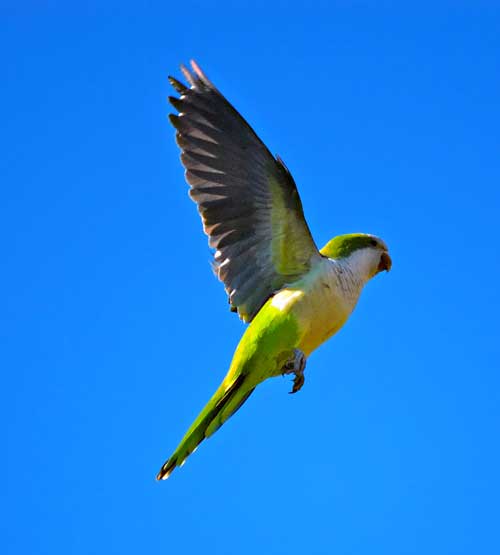
As someone who has worked with quaker parrots, I have seen firsthand the impact these birds can have on their environment. In this section, I will discuss some of the reasons why quaker parrots are illegal in some places, focusing on their impact on the environment.
Invasive Species
Quaker parrots are not native to many of the places where they have been introduced, including the United States. As a result, they are considered an invasive species. Invasive species can have a negative impact on the environment by outcompeting native species for resources and altering ecosystems. Quaker parrots are particularly successful at establishing themselves in new environments, which can make it difficult to control their populations.
Agricultural Threats
Quaker parrots can pose a threat to agriculture in some areas. They have been known to damage crops, particularly grain crops like corn and wheat. This can have a significant impact on the food supply for both humans and animals. In addition to damaging crops, quaker parrots can also damage agricultural infrastructure like irrigation systems.
Power Outages
Quaker parrots are known for building large nests, which can cause problems when they build them on power lines and other electrical infrastructure. These nests can cause power outages, which can be costly and dangerous.
In some cases, quaker parrots have been known to cause fires when their nests come into contact with electrical equipment.
To sum up, quaker parrots can have a significant impact on their environment, particularly when they are introduced to new areas where they are not native. While they are beloved by many as pets, it is important to consider the potential impact they can have on the environment before introducing them to new areas.

